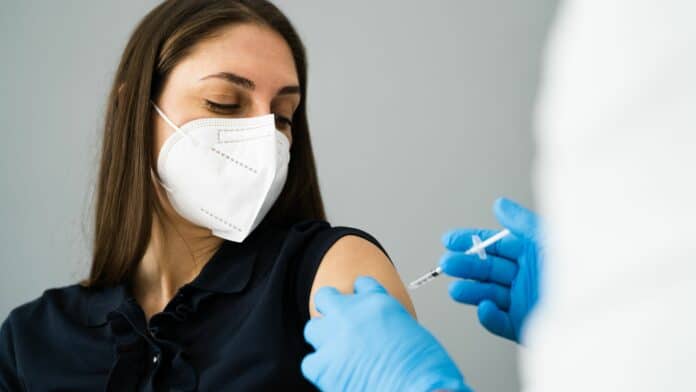The COVID-19 vaccines’ real-time development gave the impression that they were created more speedily than other vaccinations. There are currently no long-term statistics on their effectiveness and safety. As a result, compared to other vaccines, people may be more unsure about COVID-19 immunizations.
People high in anxiety have greater intolerance of uncertainty (IUS) and may have greater fears of adverse effects and concerns about the vaccine failing to prevent COVID-19. Ultimately, people with anxiety disorders may have greater COVID-19 vaccine hesitancy.
A new study by the University of Waterloo examined the relationship between vaccine hesitancy, psychological factors associated with anxiety, and individuals’ reasoning for and against the COVID-19 vaccine. Scientists found that individuals who deal with anxiety are no less hesitant to get the COVID-19 vaccine compared to those without anxiety.
148 participants with and without anxiety disorders were surveyed in this study. They were asked to complete a questionnaire examining COVID-19 vaccine hesitancy and other related variables such as conspiracy beliefs, individualism, and intolerance of uncertainty. They were also asked about the top reasons why individuals were motivated to get the vaccine and the top reasons why they were hesitant.
Participants were reluctant to receive the vaccine for a variety of reasons. Still, the effectiveness and novelty of the vaccine, as well as concern over side effects, were the most frequent ones. In contrast, participants’ three most common motivations for getting the vaccine were to protect themselves and others and regain a sense of normalcy.
Researchers discovered no differences in vaccine reluctance between anxious participants and those who were not. However, in non-anxious participants, discomfort with uncertainty predicted higher vaccine hesitation, and in both groups, individualistic worldviews, conspiracy theories, and a lack of faith in authority predicted vaccine hesitancy.
Dr. Christine Purdon, professor of Clinical Psychology at Waterloo, said, “People with anxiety difficulties were not more hesitant about the vaccine, rather, the more discomfort they had with uncertainty, the less hesitant they were. The opposite was true of those without anxiety, suggesting that discomfort with uncertainty may be an important factor when addressing vaccine hesitancy.”
Aliya McNeil, the lead author of the study and a master’s candidate in clinical psychology at Waterloo, adds that the findings could suggest that people without anxiety disorders are concerned with uncertainty related to the vaccine itself. In contrast, people with anxiety disorders might view the vaccine as an opportunity to reduce stress and uncertainty related to the virus. This may indicate that vaccine hesitancy relates to how one values independence.”
McNeil said, “Governments and public health departments might want to consider advertising vaccines in ways that activate fewer feelings of individualism. It’s important for campaigns to enhance trust in the vaccine by focusing on the scientists responsible for vaccine development rather than large corporations. In addition, by normalizing feelings of uncertainty and providing evidence-based information, governments can guard against the worrying that occurs with vague and uncertain information.”
According to scientists, their findings will help in future research that continues to explore vaccine hesitancy and interventions to promote vaccine uptake.
Journal Reference:
- Aliya McNeil, Christine Purdon. Anxiety disorders, COVID-19 fear, and vaccine hesitancy. Journal of Anxiety Disorders. DOI: 10.1016/j.janxdis.2022.102598
